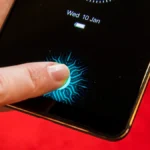Let’s say you are in your home just chilling, and then suddenly the power goes out and it has already been way too many times that now you are wondering whether it is the MCB tripping or not, right? It probably is, and if you have already verified that, then you may be looking for some fixes, and if that’s the case, then you are at the right place for it. Here we are not only going to show you what could be wrong with your MCB, but how to actually fix it or have it fixed. So, here we go.
Common Reasons for MCB Tripping

1. Overloaded Circuits
One if not the most frequent or common cause of MCBs that can trip is an overloaded circuit. Simply put, this results from exceeding the current the circuit was built to sustain, you know? For instance, if you are using such devices as air conditioners or microwaves placed at the same time on a single circuit, the MCB will trip to avoid overheating and further hazards causing damage to parts of the circuit, that’s what happens most of the time.
Here’s How To Fix It:
Try to share the load evenly with many circuits. Like, no two of them can be on the same microwave or air conditioner circuit.
Likewise, if the situation persists, you may either have to enhance or install additional circuits in order to increase your power consumption capacity. That’s the only fix in this case!
2. Short Circuits
You see, a short circuit happens when the “live” wire (which carries current) comes into contact with the “neutral” wire or any conductive object, like metal, you know? As you can guess, this sure is going to create or cause a surge in electrical current, which the MCB detects and responds to by shutting off the power to prevent damage.
Keep in mind though, that these short circuits are dangerous because they can cause electrical fires if not addressed right away, it is not like you can leave it for some other day.
Here’s How To Fix It:
First of all, get down to inspect your wiring and outlets for signs of wear, fraying, or damage. There, if you see any exposed wires or signs of burning, it’s important to turn off the power and call a qualified electrician immediately because that would be the best choice.
On top of that, you can also ensure that appliances plugged into the circuit are not faulty.
3. Ground Faults
In fact, a ground fault is pretty much a short circuit that happens when the “live” wire gets into contact with something that is earthed, e.g. a metal frame or an appliance casing, which is an issue pretty similar to the previous one we discussed on this post, right? Just so you know, the voltage becomes very severe and thus the electrical signals tend to flow in an unintended way, which may result in electric shocks or fires.
Here’s How To Fix It:
To know if you’re having a ground fault, the most effective way is to locate the fault with an insulation resistance tester. This nifty little thing can pinpoint where the fault is letting go, you know? Usually, though, improper wiring, or a damaged wire or insulation, will be the answer. After the fault is found, just get down to replace or repair the damaged parts.
4. Faulty Appliances
Sure, there are times when the MCB is tripped not because of the wiring or circuit but due to a defective appliance connected to the circuit, you know? Just so you know, it is true that a malfunctioning appliance can cause an excessive draw of current or short-circuiting.
Here’s How To Fix It:
First and the necessary thing is that you unplug all the machines from the circuit that is affected. Only after that, reconnect the devices one by one while keeping an eye on the MCB. If a particular device causes the breaker to trip, that device is probably the problem and needs to be repaired or replaced. Simple as that!
5. MCB Sensitivity
Were you aware that sensitiveness may occur in the MCB itself? Or it may be that it was already damaged. In such cases, the system will trip, even if there is no fault in it. A common problem of older MCBs is that they wear gradually and trip frequently, so what would be the fix for that?
Here’s How To Fix It:
Perhaps, the MCB you suspect is too sensitive. In this case, though, it could be replaced with a unit that has a higher rating or a lower tripping threshold specific to your circuit, since there is nothing else you can do about it. It would be even better to have an electrician test the MCB to know whether it is operational or in need of replacement.

